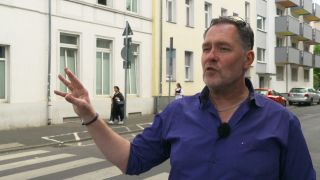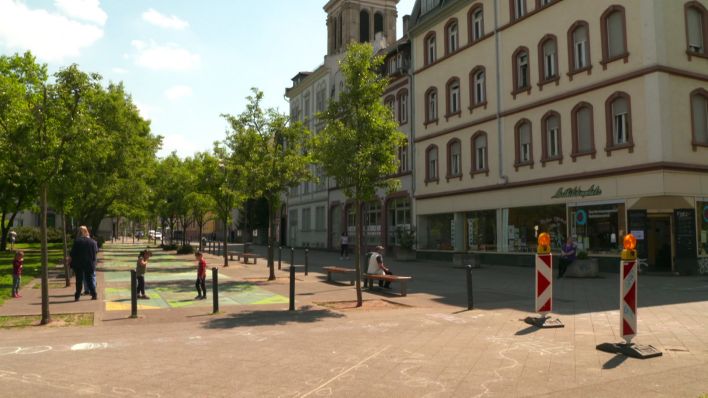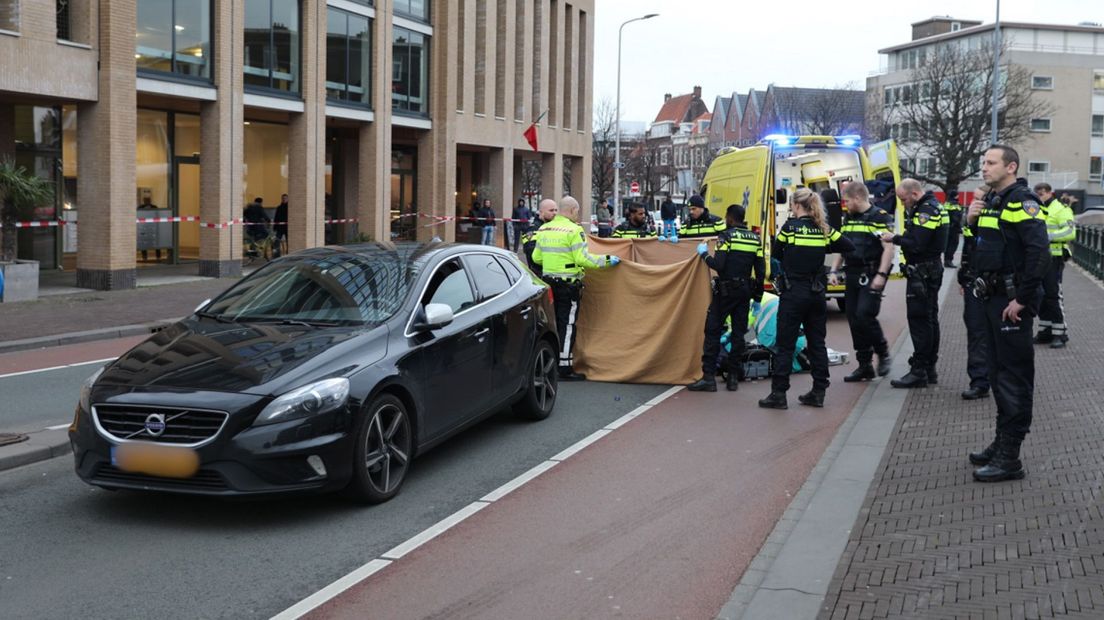Rollbergesiedlung Berlin – Mathildenviertel Offenbach
–
How to save a crashed quarters
Thu 16.06.22 | 6:28 p.m. | Of
–
A particularly large number of poor people live in more than 40 neighborhoods in Berlin – in the Reinickendorfer Rollbergesiedlung, poverty is inherited to a certain extent. The city of Offenbach has broken such a vicious circle. By J. Göbel and U. Barthel
–
Almost 6,000 people live in the Rollbergesiedlung in Reinickendorf. Many here are unemployed and child poverty has been at over 60 percent for years and poverty is now passed on from generation to generation.
But the district is not only characterized by poverty, it is also becoming increasingly neglected. The houses have not been renovated for decades, the facades are gray – and when the plaster comes off, it’s patched up. Playgrounds and green areas urgently need an overhaul. Rats and garbage are a big problem.
–
The Senate Department for Urban Development also knows that something has to change in the Rollbergesiedlung. Senator Andreas Geisel (SPD) promised support at the beginning of the year, his state secretary Ülker Radziwill (SPD) is now in the Rollbergesiedlung for the third time. She is responsible for district development in Geisel’s administration.
The district management has been under construction in the Rollbergesiedlung since 2021. The state and district want to create a meeting place for people here and support local initiatives. When asked when things should really get going, State Secretary Radziwill replies: “Of course, it always takes a little time for the team to be put together.” A concept that is now to be implemented has already been written.
–

The good example can be found in Offenbach
Perhaps it’s worth taking a look at the Mathildenviertel in Offenbach am Main – even if a city with 130,000 inhabitants can of course only be compared to the metropolis of Berlin to a limited extent. However, the starting position of the Mathildenviertel is quite comparable to that of the Rollbergesiedlung. But that was 20 years ago.
“By the turn of the millennium, the quarter had run down completely,” says Marcus Schenk, who has been in charge of quarter management here for more than ten years. “There was a lot of wasteland, dirt, drugs and destruction.” However, through targeted measures by the city and together with the residents, the Mathildenviertel with its 10,000 inhabitants has now developed into a residential area that is downright hip. Child poverty – one of the most important indicators of the social situation of the residents – is declining.
–

Whether streets, squares or houses, everything has improved here, says neighborhood manager Schenk. New apartments were built, including condominiums and student apartments. Space was created for start-ups in an old printing shop, which attracted young people to the Mathildenviertel. There are sun loungers on the meadows on the adjacent banks of the Main.
According to Marcus Schenk, active district management is particularly important. It was created here in the loveliest spot in the neighborhood: “It took about three years before we had the trust of the people in the neighborhood,” he says of the beginnings. Today there are language courses, life advice, cooking evenings, graffiti workshops. Many of these activities were then developed together with the local residents.
–
Rollbergesiedlung: tenants become active themselves
There are also active tenants in the Rollbergesiedlung in Berlin-Reinickendorf, but they feel abandoned by the politicians – like Renate Thiele, for example. The pensioner regularly collects rubbish on the street. “I can’t stand the fact that the neighborhood is getting more and more polluted,” she says.
Tenant spokeswoman Elke Schmolt keeps calling Gewobag when tenants have problems with broken windows or the heating. And in the “Face” church center, two part-time social workers are trying to meet the great need for advice of thousands of people. “We are too few,” says social worker Dorothea Schmidt, “and we don’t have enough space.”
–
Offenbach has set priorities
In Offenbach they have set priorities and put money into their hands for the Mathildenviertel. In fact, the city no longer affords a theater or an indoor swimming pool, and there is not that much money available for road renewal. But there are now enough daycare places in the Mathildenviertel, for example: their number has been massively increased, with three to six year olds covering 98 percent in the Mathildenviertel. And there is extra language support there. This is important because the proportion of immigrants in the Mathildenviertel is more than 90 percent.
The children expand their vocabulary in the day care center and learn to speak actively. Muhammad Taimoor Janjua, whose son goes to daycare here, says: “We try to speak German at home, me and my wife. But we’ve noticed that since our son went to daycare, his language has improved a lot.” And Tuba Aydin reports: “My daughter has been in the day care center since September and only spoke Turkish. Now she even speaks German to me.”
“Despite tight budgets, no savings are being made on the construction and expansion of new day care centers,” says Susanne Pfau, head of the “Mainarbeit” municipal job center.
–
 Locked-off playground in the Rollbergesiedlung
Locked-off playground in the RollbergesiedlungRollbergesiedlung: female teachers cannot compensate for everything
In the Berlin Rollbergesiedlung, parents, social workers and teachers are complaining about the lack of daycare places. 70 percent of the children in the “elementary school in the Rollbergen” have language or learning problems when they start school. “I try very hard and I love my work,” says teacher Angela Garling, “but I can’t make up for it.”
Although the school is better equipped because of the high need for support, only 25 percent of the children here get a recommendation for a Gymnasium. The Berlin average is almost twice as high. There are just as many talented and clever children here, says the teacher, but they don’t have the same opportunities. There is a lack of teachers and educators who can compensate for the deficits under which the children grow up. Help for the families, from which parents and children benefit equally.
–
Offenbach provides targeted support
In Offenbach there has been a broad support package for people who need support for years. The impetus came almost twenty years ago from the job center. “The unemployment rate was high,” says the current manager, Susanne Pfau. The city has decided not only to pay social assistance to the long-term unemployed, but to give them better support in order to reintegrate them into the labor market. “Our goal was to continuously bring the unemployment rate down and also to improve the social structure, i.e. to improve living conditions overall.”
–
That is why there are also many offers for people in difficult situations. In the schools, notorious truants are taken out of the regular school system and taught in small groups. Long-term unemployed can learn how to deal with customers in the social department store Luise and are prepared for a return to the labor market. Or they work as so-called walkers, registering and collecting rubbish in the neighborhood.
Mike Hirsch has been with us for almost a year. “In the beginning I was afraid to go into a real working life,” he says, “but not anymore. I’m in the process of writing applications”. All of these measures reduced unemployment and with it child poverty. The quarter became richer, parents and children were given future opportunities.
–
Rollbergesiedlung: Complete renovation is a long way off
In the Berlin Rollbergesiedlung, people have hardly had any support when it comes to coping with everyday life. There is a lack of offers, for example for school problems, job hunting, health concerns or language difficulties.
–
State Secretary Ülker Radziwill dodges the question of why such offers have so far hardly existed. She prefers to talk about the future: “Support is needed here. And it’s good that we’re here now and developing things locally.”
Radziwill cannot say when the long-planned community center with daycare will be built. Nor does it say when the urgently needed renovation of the Rollbergesiedlung will begin – but all of this is in the planning stage, she says.
The owner has been the state-owned housing association Gewobag since 2019. Investments will be made in heating and elevators this year and next, it says on request. However, an all-round refurbishment of the quarter is not to be expected in the next few years. It is also unclear whether and when there will be construction for new residents, also to improve the social structure.
There is space and plans for new buildings. In any case, the first requirement is a better infrastructure. In Offenbach they have had success with new construction and conversion measures.
–
 Houses in the Rollberge settlement
Houses in the Rollberge settlementA task for at least ten years
In the Mathildenviertel there was no displacement, but an appreciation, according to district manager Marcus Schenk. The mix has improved because more people now have work – and thus a real income. “Getting someone to work and bringing economic stability to a family is the best way to improve coexistence in a society,” he says.
Schenk recently took over the neighborhood management in another Offenbach district. You need staying power for this task and a lot of time: “It will take at least ten years.”
–
Show: Kontraste, Das Erste, June 16, 9:45 p.m
–


